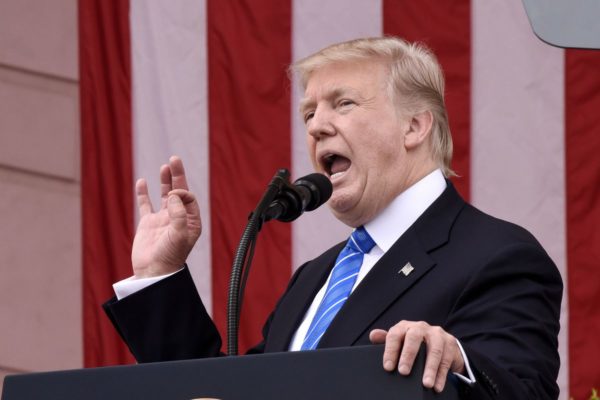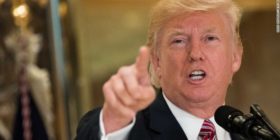Donald Trump’s decision for the US to join the elite club — hitherto comprising only Syria and Nicaragua — of countries rejecting the climate agreement has largely drawn negative reactions from all over the world. Not that it mattered to the US president, who delivered a chest-thumping address from the White House, and then took to social media for a bit more thumping of his chest:
There’s nothing wrong per se with the sentiment expressed in the wording of the tweet, although the idea of a demand for a ‘level playing field’ sitting beside a call for America to be ‘First’ might appear slightly contradictory. Very slightly, mind you. It’s a closer look at the full text of Trump’s address that is far more instructive and brings to the fore a somewhat unsettling reality: This is the zenith or nadir (depending on how you see it) of the US president’s isolationist agenda… well, so far at least. What’s worse is that Trump’s move is already inspiring similar sentiments in other parts of the world, even as the likes of Justin Trudeau, Emmanuel Macron and the rest are trying desperately to hold the agreement together. Eric Abetz, senator from Australia — a country that relies on coal for around three-quarters of its electricity — had the following to say shortly after Trump’s address: But back to Trump, and these few lines sum up the president’s longstanding strategy perfectly: China will be allowed to build hundreds of additional coal plants. So we can’t build the plants, but they can, according to this agreement. India will be allowed to double its coal production by 2020. Think of it: India can double their coal production. We’re supposed to get rid of ours. Even Europe is allowed to continue construction of coal plants.In short, the agreement doesn’t eliminate coal jobs, it just transfers those jobs out of America and the United States, and ships them to foreign countries. This agreement is less about the climate and more about other countries gaining a financial advantage over the United States. Ever since he hit the campaign trail, Trump has played the fear-mongering card. His method has differed subtly but significantly from the fear-mongering espoused by George W Bush, who convinced the US that its way of life was under threat. In the lead-up to the presidential election, Trump set about convincing Middle America that its quality of life was under threat. As president, the former real estate tycoon has carried the same card onto a grander stage: Attempting to convince the US that its quality of life is under threat.
And in doing so, he is actively pushing the country on a more inward-looking path. That this is the height of Trump’s isolationism is evident in the fact that he saw fit to walk out of a deal signed by 98.9 percent of the world’s countries — indicating the near-total global realisation that climate change is a very real threat — to prevent other countries ‘gaining a financial advantage’ over the US. Former president Barack Obama offered his views on the US exit from a deal his administration had worked so hard to secure: A year and a half ago, the world came together in Paris around the first-ever global agreement to set the world on a low-carbon course and protect the world we leave to our children. It was steady, principled American leadership on the world stage that made that achievement possible… But even in the absence of American leadership; even as this administration joins a small handful of nations that reject the future; I’m confident that our states, cities, and businesses will step up and do even more to lead the way, and help protect for future generations the one planet we’ve got. This absence of American leadership, as was noted by the previous commander-in-chief, has not gone unnoticed by China. “A reckless withdrawal from the climate deal will waste increasingly finite US diplomatic resources, and the US’ selfishness and irresponsibility will be made clear to the world, crippling the country’s world leadership,” read a stinging op-ed in Global Times. Beijing has long been eyeing the role of world leader, as was evident in the way President Xi Jinping emerged as a champion of globalisation at this year’s Davos Summit, stating, “Pursuing protectionism is like locking oneself in a dark room.” It’s likely China anticipated what Trump would say in his very loudly promoted address on the climate agreement.
Accordingly, Chinese prime minister Li Keqiang, while on a visit to Germany, was quoted by AFP as saying, “China will continue to implement promises made in the Paris Agreement, to move towards the 2030 goal step by step steadfastly”. Whether or not China will replace — or will be allowed to replace — the US as the global leader remains to be seen. However, for now, Trump his given his clearest indication yet that he has absolutely no interest in reprising the role played by his predecessors.






Leave a reply